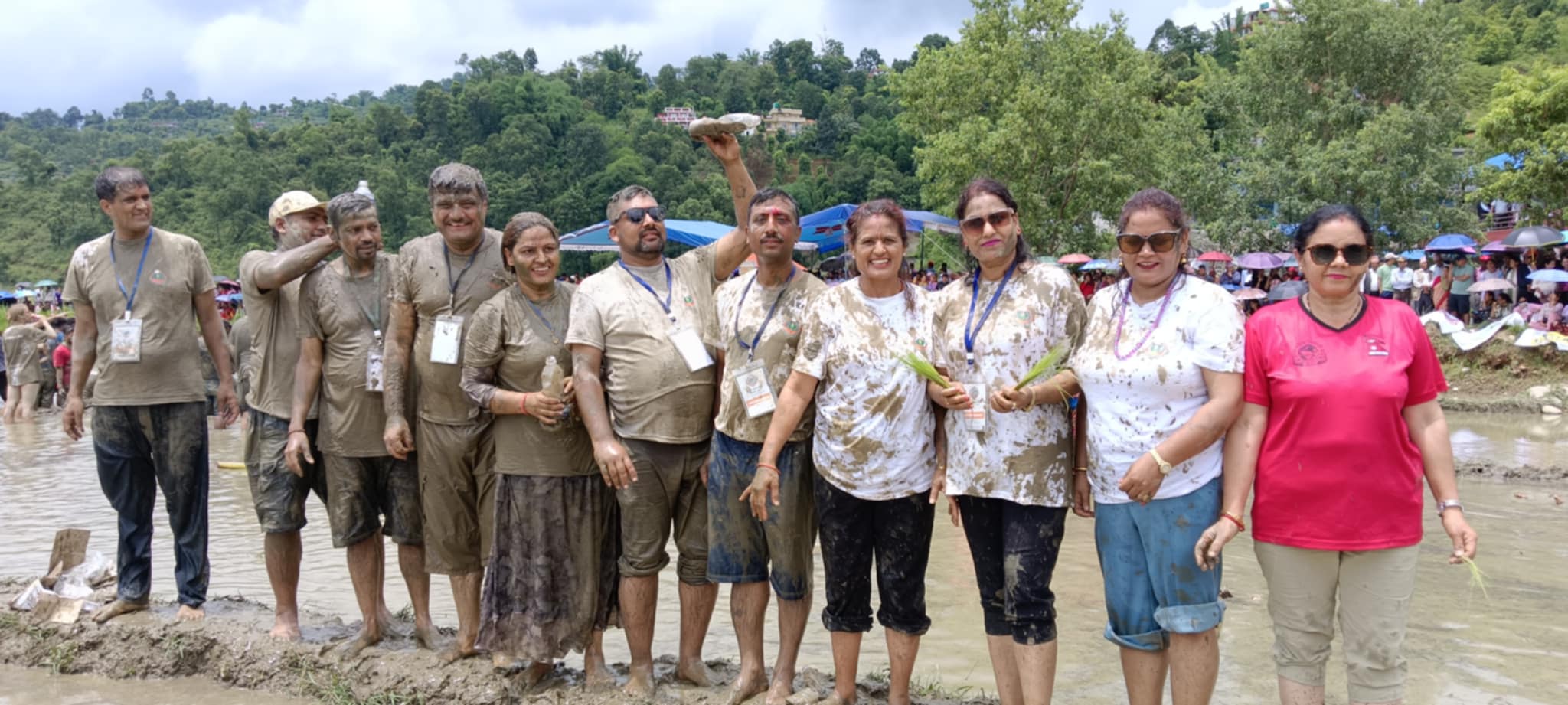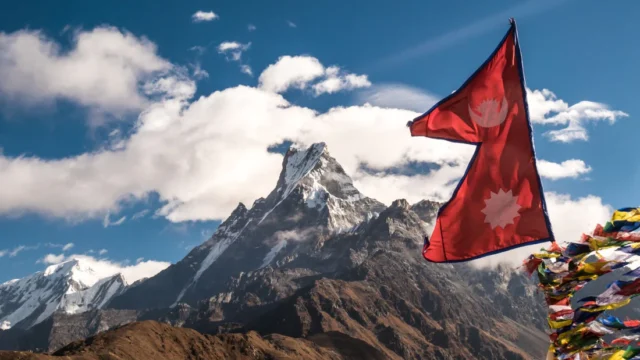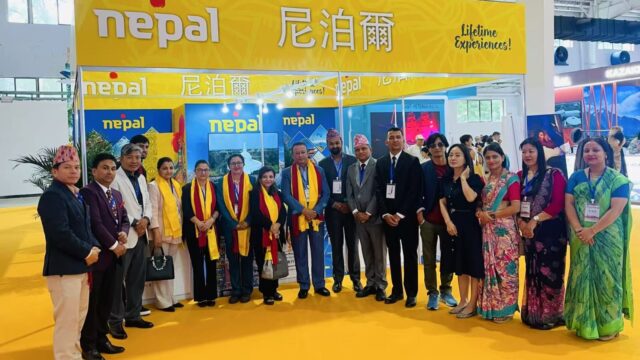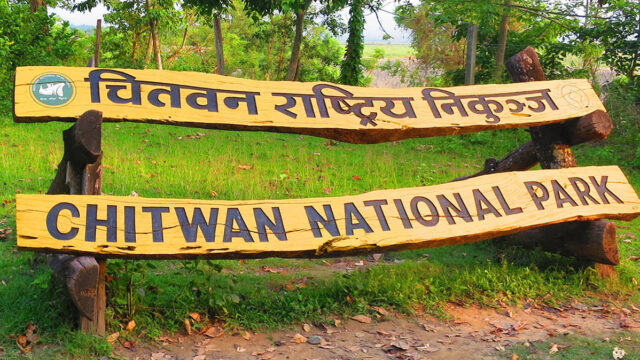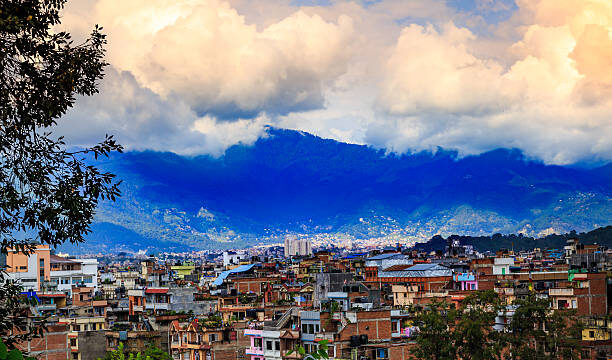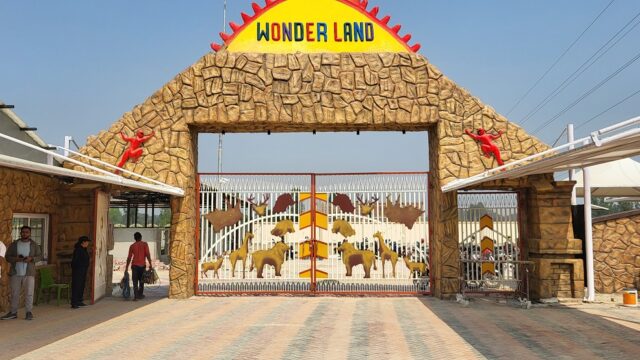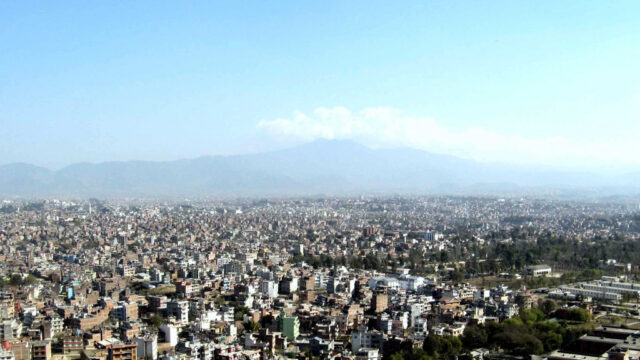With the vision of showcasing Pokhara as a year-round travel destination, the 20th edition of the Ropai (Rice Planting) Festival concluded successfully at Gude Lake in Pokhara-26, Lekhnath. Organized with the theme of connecting agriculture and tourism, the event highlighted Nepal’s rural traditions through an immersive cultural experience for domestic and international tourists alike.
A Festival That Blends Agriculture with Experience
While rice planting is a seasonal agricultural activity deeply rooted in Nepali tradition, the Ropai Festival has become a unique cultural event attracting global attention. This year’s edition saw participation from both local communities and foreign travelers who embraced the essence of Asar 15 – National Rice Plantation Day in Nepal.
At Gude Lake, a tranquil yet lesser-known body of water in Lekhnath, locals recreated the rural charm of rice planting. From singing traditional “Asare” songs to engaging in muddy games and sharing typical Nepali snacks like dahi, chiura, selroti, and gundruk achar, the atmosphere reflected a vibrant village celebration. Tourists joined local farmers in the paddy fields, splashing through mud, planting saplings, and dancing to the rhythm of folk music.
Foreign Tourists Enthralled by the Cultural Immersion
For tourists, the festival provided an opportunity to participate in an authentic rural tradition. Maddy, an Australian traveler currently touring Nepal, described the experience as “beyond expectations.”
“I had never seen anything like this before. Watching a community work together with such joy and unity was a highlight of my Nepal trip,” she said. Though unfamiliar with rice planting, she found the muddy fields more inviting than daunting and cherished the welcoming spirit of the locals.
Austrian tourists Elisa and Marlene also joined the festival, participating in planting rice and enjoying the traditional cuisine. “We don’t have festivals like this back home, where the entire community joins hands for agricultural work. It’s beautiful,” Marlene shared.
Similarly, a Canadian tourist who visited after completing the Everest-3 trek found the celebration refreshing and joyful. “There are no rice fields where I come from – Vancouver, Canada. This kind of hands-on community effort is rare in my country,” he noted, expressing how the shared labor and celebration created memories he’d take home.
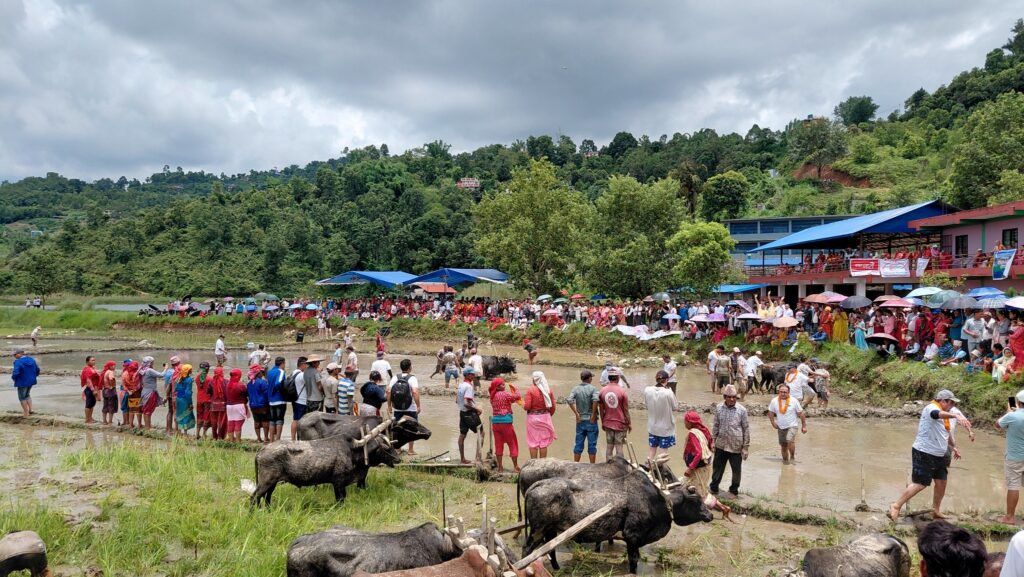
Reviving Gude Lake Through Festival Tourism
The decision to host the event at Gude Lake, rather than more popular destinations, was intentional. According to landowner and local activist Bamdev Dhungana, Gude Lake has long remained overshadowed by other lakes in Pokhara. The festival aimed to change that.
“Today, with the crowd of both Nepali and foreign guests, we’ve started to see Gude Lake in the spotlight. We hope this momentum continues throughout the year,” he expressed optimistically.
Ward Chairman Narendra Thapa of Pokhara-26 emphasized the importance of utilizing the area’s natural assets. “Of Pokhara’s eight major lakes, seven are in Lekhnath. Just in Ward 26, we have Gude, Khasté, and Nyureni lakes. Events like this can support our tourism development plans,” he stated. The ward office has already prepared a master plan to promote bird-watching tourism in the region, with Gude Lake marked as a significant site due to the rising number of migratory birds spotted.
Tourism Council’s Vision: Breaking Seasonality in Pokhara
According to Taranath Pahari, Chair of the Pokhara Tourism Council, the Ropai Festival is part of a broader strategy to mitigate the sharp decline in tourist visits during the monsoon season.
“People assume Pokhara is only beautiful during the dry season. But monsoon holds its own magic, especially when it comes to showcasing local culture,” said Pahari. He added that connecting festivals like this with tourism not only revitalizes overlooked destinations but also extends the tourism season.
Since 2061 BS, the Council has been organizing rice planting festivals annually on Asar 15. The 20th edition at Gude Lake marked a shift in strategy to promote off-season travel and diversify tourism activities in the region.
Community-Led Celebration Sparks Hope for Sustainable Tourism
The local Shantipremi Women’s Group played a crucial role in organizing the event. The group’s coordinator expressed confidence that their efforts would lead to long-term recognition of Gude Lake as a tourist spot. “We want tourists to come not just for the lakeside and mountains but to experience our community, food, and tradition. That’s the soul of real Nepal,” she said.
With growing interest from tourists and support from local government bodies, the Ropai Festival has become more than just an agricultural event, it’s now a symbol of sustainable and experiential tourism in Nepal. As tourists return home with stories of dancing in the rain and planting rice in the Himalayan foothills, Gude Lake and Lekhnath may soon be among the must-visit destinations on Nepal’s tourism map.
